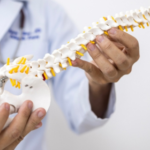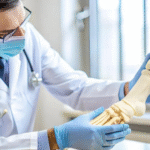
When contemplating the nature of oral health, one must at some point acknowledge the part played by the genes in elaborating and forming the several aspects of dental health. Genetics also plays a role in the formation of teeth, the shape and position of the jaws, and even to some forms of dental disease whether you are going to a dental office Newton MA, or anywhere else.
From genes one acquires characteristics like the size and form of teeth, strength of enamel, and reaction of the body toward bacteria in the mouth. These factors which are inherited can greatly determine the ability one has in performing the oral health care regime neglecting the fact that there are regimes that need to be followed daily.
Can Genetics Be A Factor In Gum Diseases?
Yes, there are clear links between genetics and gum health which means that individual gene variations may seem to influence gum disease. It causes periodontal diseases; these diseases are severe gum infections that affect the soft tissue and lead to the destruction of the bone that supports your teeth are said to be caused by genetics.
Gum disease may run in families, therefore human beings with some family lineage to this illness may be more prone to it. This is due to the fact that there are congenital factors that can encourage the occurrence of inflammation and infection even if the person observes utmost dental hygiene. However, some people are genetically predisposed to how their body reacts to bacteria in the mouth causing advanced gum problems as time goes by.
In what ways does genetic factor affect the positioning of teeth?
Another type of dental arrangement, which refers to how your teeth are positioned and oriented, is also determined, to some extent, by heredity. It is entirely possible that you inherited your parents’ dental structure, signs of which can manifest in overbites, underbites, crowded teeth, etc.
All the mentioned alignment problems are not only aesthetic in nature; they can also influence the ways chewing, speech, and oral hygiene are performed. Crooked teeth generate spaces that are very difficult to clean, as a result, the chances of oral cavities and gum diseases are highly likely.
For this reason, there is an opportunity to prevent in advance if you know what genes are in you: for example, orthodontic treatments in early childhood for improper position of teeth.
Is oral cancer hereditary?
There are several causes of oral cancer, but the most significant ones include smoking, alcohol consumption, and genetic factors. There is evidence to suggest that if you have a family history of oral cancer then you are more vulnerable to this type of cancer.
Actually, it must be noted that the changes or mutations that put a person at a higher risk of cancer can be hereditary which is why it is important for such people to get checked often.
Oral cancer is best detected at its initial stages, and this develops the argument of people understanding their probability of developing the condition genetically as a preventive measure.
Conclusion
Genetics is an aspect that defines almost all parameters related to oral structures and pathoses, right from dentition to diseases such as caries, periodontal disease, and even oral malignancies.
Knowing the genetics of oral health can lead to proper preventive measures that will assist people in taking good care of their oral health. Semi-annual dental check-ups and knowledge of one’s inherited risks are major factors that will help one evade possible adverse oral health circumstances.
In this way, it is possible to know the peculiarities of your genetic makeup but not become a prisoner of them in terms of an oral health condition: instead, genetic tendencies should be used as a map to follow a proper preventive regimen.














